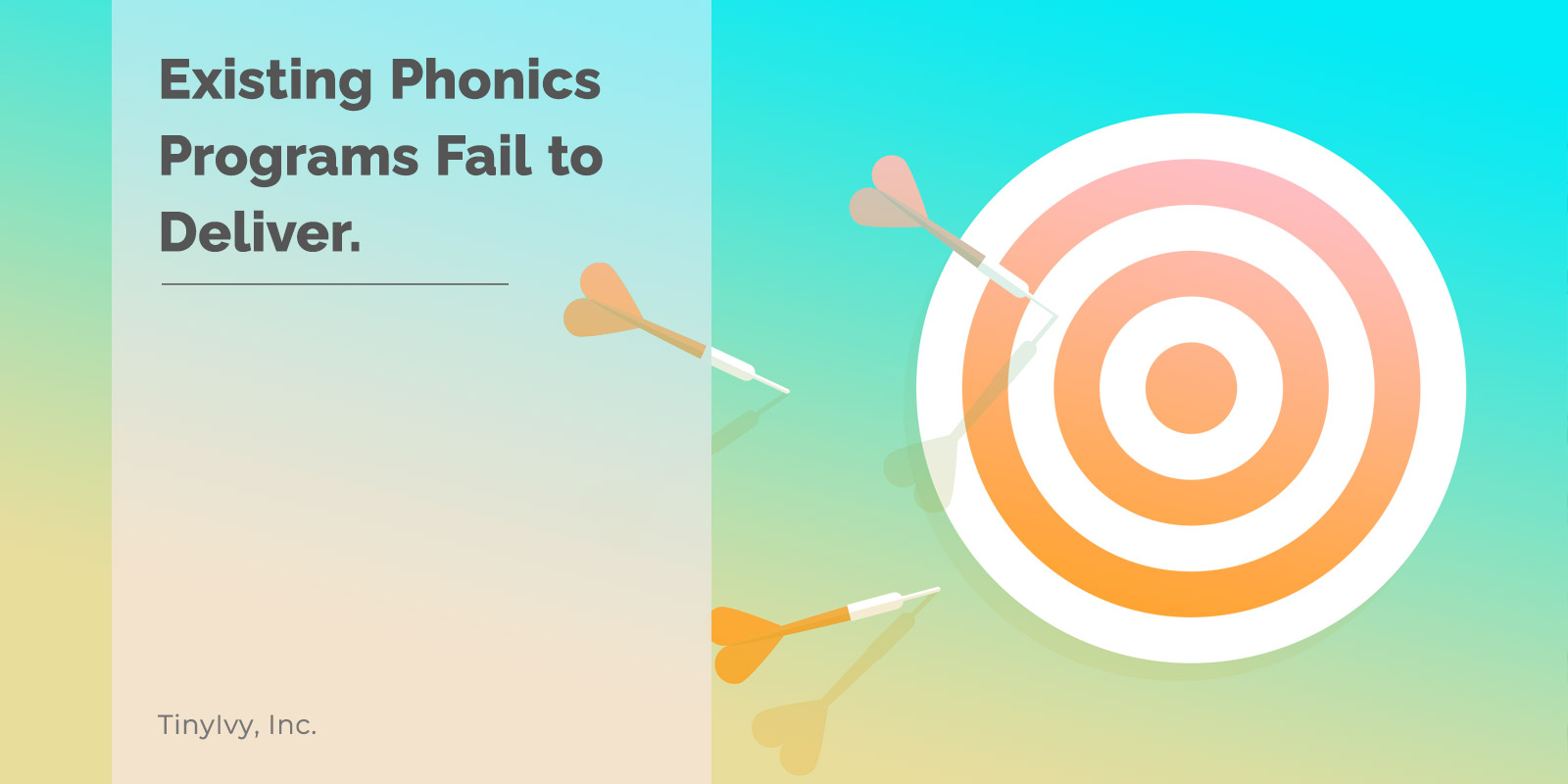While advances in the science of reading continue, the literacy products used by schools and classrooms and teachers have failed to keep pace.
None of the programs reviewed in the recent EdReports review "meets expectations" overall, even within a single category.
Even clear and established guidelines like phonemic awareness and decoding are poorly addressed by existing solutions.
Fortunately, there is a better tool in the horizon.
Most Phonics Programs Fail to Deliver
How many of the top phonics programs are able to get kids ready to read?
Unfortunately, most phonics programs fail to deliver the systematic education needed to build the foundation of reading skills.
No programs cover all the fundamentals that, through years of research, have been found to be critical in building early literacy.
The Impact of Phonics
A child's ability to read is a simple combination of two factors, their language comprehension, and their ability to decode the words printed on the page.
Phonics can be a powerful tool for students, allowing them to sound out words they don't know by sight.
In the past few years, significant advances in research are proving the importance of teaching phonics in literacy education. And yet, existing products have been unable to deliver in alignment to these known best practices.
Current Top Programs Do Not Meet Expectations
EdReports, a nonprofit dedicated to independent validation of educational products, recently reviewed five supplemental programs designed to help children read, using a new standard that focuses on children in kindergarten to second grade.
Of the five systems reviewed, no product met expectations for even a single category. Only three products partially met some of the requirements.
None of these programs in and of themselves would be sufficient to get all of the foundational skills for kids.
Eric Hirsch, Executive Director of EdReports
EdReports plans to continue reviewing more programs like this in order to assess their ability to develop fundamental reading ability in children.
Taking Phonics to the Next Level
Despite the benefits of phonics, it's not an effective strategy on its own, since there isn't enough regularity in English spelling for it to play a primary role when learning to read.
While the reviews mentioned above look at the established best practices, we are working to prove a new best practice: teaching kids to read with TIPS™.
Interested? Learn more about TIPS™ and how it incorporates the best that phonics has to offer, while solving the challenges that make current phonics program insufficient.
If you are a teacher, we'd like to invite you to participate in our research study!

